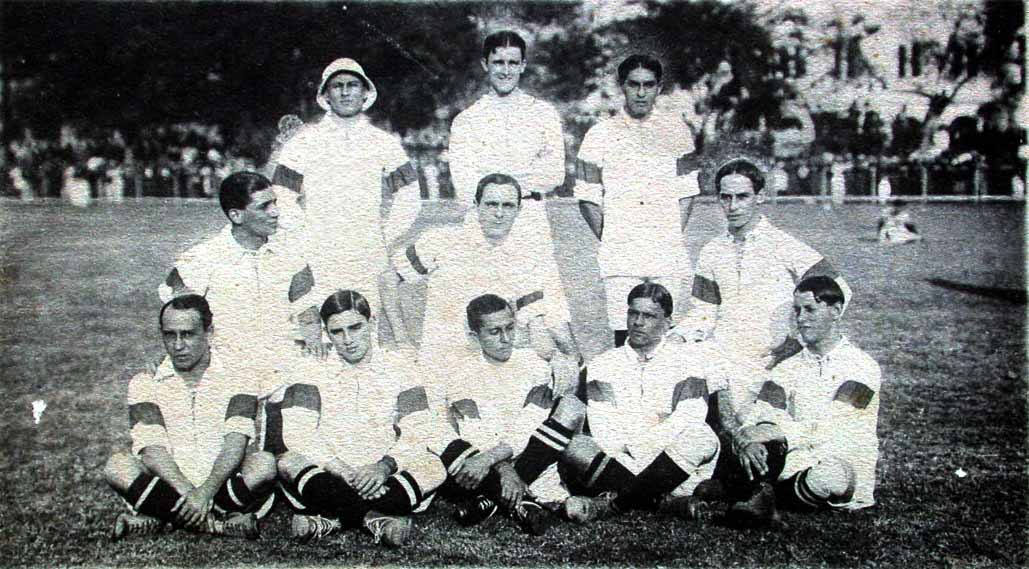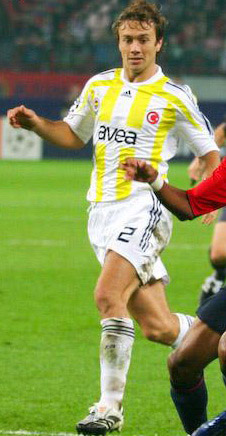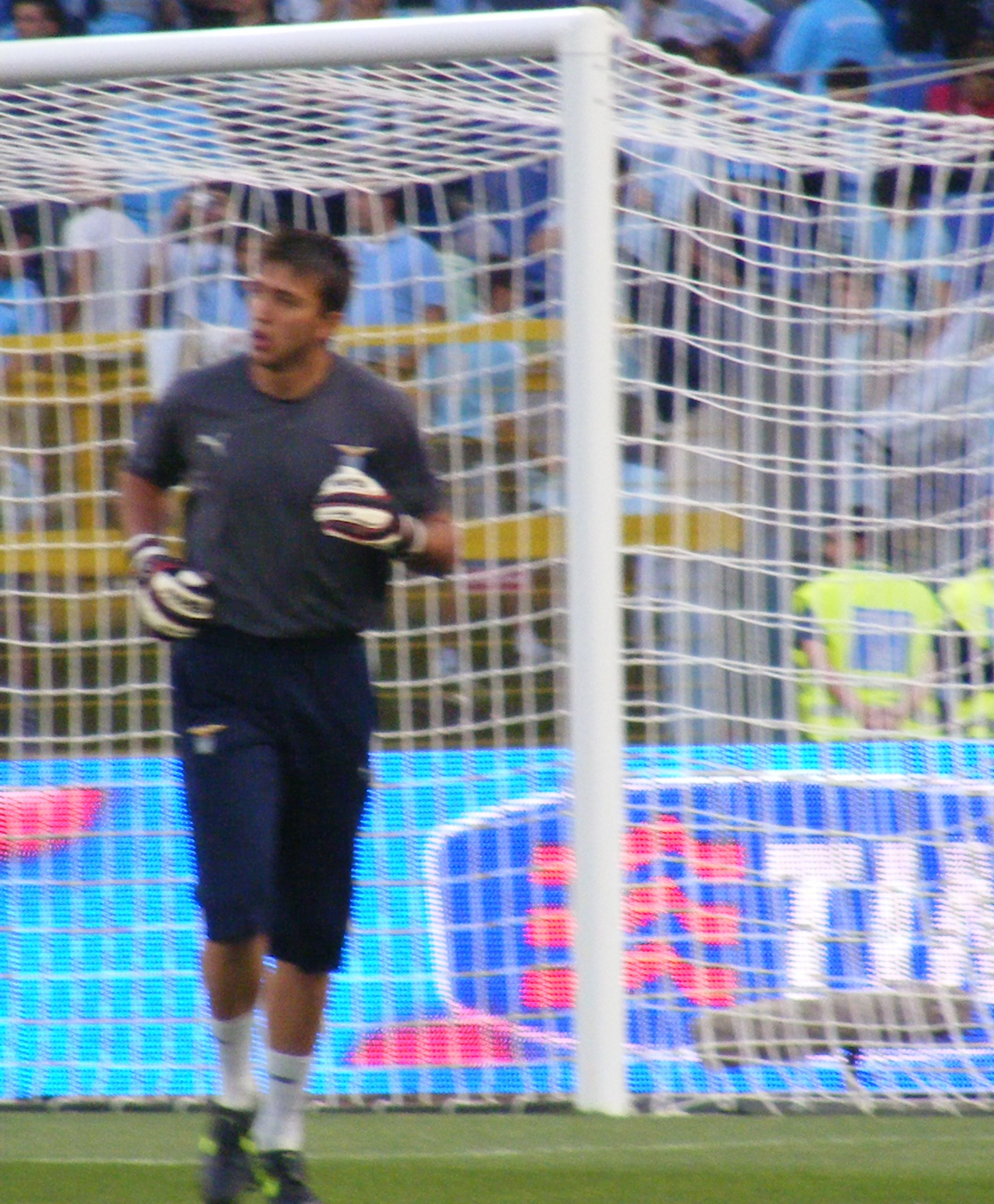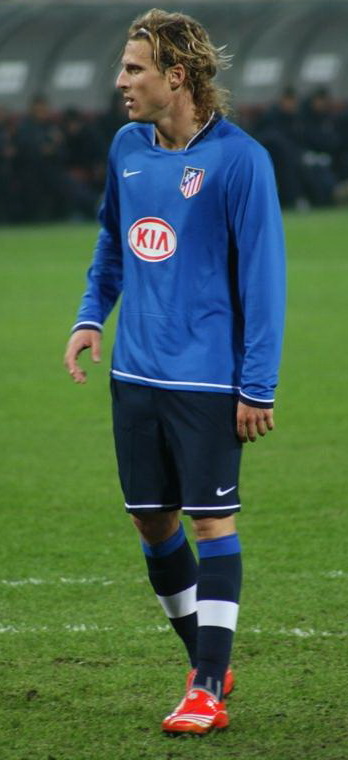|
2011 Copa América Final
The 2011 Copa América Final was the final match of the 2011 Copa América, an international football tournament that was played in Argentina from 1 to 24 July 2011. The match was played on 24 July at Estadio Monumental Antonio Vespucio Liberti in Buenos Aires, between Uruguay and Paraguay. Uruguay won the match 3–0 to earn their 15th Copa América; Paraguay, as the tournament runner-up, earned the Copa Bolivia. With the win, Uruguay earned the right to represent CONMEBOL in the 2013 FIFA Confederations Cup in Brazil. Background The final marked the first time since 2001 that neither Argentina and Brazil competed against each other for the title. Both Uruguay and Paraguay entered the match having previously won the competition multiple times. Uruguay held the joint record of 14 Copa América titles, having had last won it in 1995. Their last final appearance was in 1999, when they were defeated by Brazil. Paraguay is a two-time winner of the competition, having last won the t ... [...More Info...] [...Related Items...] OR: [Wikipedia] [Google] [Baidu] |
2011 Copa América
The 2011 Campeonato Sudamericano Copa América, better known as the 2011 Copa América or the Copa América 2011 Argentina, was the 43rd edition of the Copa América, the main international football tournament for national teams in South America. The competition was organized by CONMEBOL, South America's football governing body, and was held in Argentina from 1 to 24 July. The draw for the tournament was held in La Plata on 11 November 2010. Uruguay won the tournament after defeating Paraguay 3–0 in the final, giving them a record 15th Copa América title and their first since 1995. Paraguay, as the tournament runner-up, earned the Copa Bolivia; Paraguay's performance was noteworthy, as they were able to reach the finals without winning a single game in the tournament; their success in the final stages was achieved by the way of penalty shoot-outs. Brazil were the defending champions but were eliminated by Paraguay in the quarter-finals after failing to convert any of the pe ... [...More Info...] [...Related Items...] OR: [Wikipedia] [Google] [Baidu] |
Brazil National Football Team
The Brazil national football team ( pt, Seleção Brasileira de Futebol), nicknamed ''Seleção Canarinho'' (‘Canary Squad’, after their bright yellow jersey), represents Brazil in men's international football and is administered by the Brazilian Football Confederation (CBF), the governing body for football in Brazil. They have been a member of FIFA since 1923 and a member of CONMEBOL since 1916. Brazil is the most successful national team in the FIFA World Cup, being crowned winner five times: 1958, 1962, 1970, 1994 and 2002. The ''Seleção'' also has the best overall performance in the World Cup competition, both in proportional and absolute terms, with a record of 76 victories in 114 matches played, 129 goal difference, 247 points, and 19 losses. It is the only national team to have played in all World Cup editions without any absence nor need for playoffs, and the only team to have won the World Cup in four different continents: once in Europe ( 1958 Sweden), ... [...More Info...] [...Related Items...] OR: [Wikipedia] [Google] [Baidu] |
Captain (association Football)
The team captain of an association football team, sometimes known as the skipper, is a team member chosen to be the on-pitch leader of the team; they are often one of the older or more experienced members of the squad, or a player that can heavily influence a game or has good leadership qualities. The team captain is usually identified by the wearing of an armband. Responsibilities The only official responsibility of a captain specified by the Laws of the Game is to participate in the coin toss prior to kick-off (for choice of ends or to have kick-off) and prior to a penalty shootout. Contrary to what is sometimes said, captains have no special authority under the Laws to challenge a decision by the referee. However, referees may talk to the captain of a side about the side's general behaviour when necessary. At an award-giving ceremony after a fixture like a cup competition final, the captain usually leads the team up to collect their medals. Any trophy won by a team will ... [...More Info...] [...Related Items...] OR: [Wikipedia] [Google] [Baidu] |
Diego Lugano
Diego Alfredo Lugano Morena (; (born 2 November 1980) is a Uruguayan former professional footballer who played as a central defender. Nicknamed ''Tota'', Lugano played for a number of clubs in South America and Europe, including Plaza Colonia, Club Nacional de Football, São Paulo, Fenerbahçe, Paris Saint-Germain, Malaga and West Bromwich Albion, before finishing his career with a second spell at Brazilian club São Paulo, where he now works as an administrator. Throughout his career, Lugano netted goals in the football leagues of Uruguay, Brazil, Turkey, England, France and Paraguay. In 2015, Paraguayan newspaper ExtraPRESS named Lugano one of the most expensive player in Paraguay, and he was also awarded by Diario Popular as the most popular player in Paraguayan football. Lugano made 95 appearances for the Uruguay national team, captaining his country at two FIFA World Cups. He was named best captain at the 2010 tournament. Club career Early years Born to Alfredo ... [...More Info...] [...Related Items...] OR: [Wikipedia] [Google] [Baidu] |
Maxi Pereira
Maxi may refer to: People Given name * Maxi Biancucchi (born 1984), Argentine footballer who plays for Flamengo * Maxi López (born 1984), Argentine footballer who plays in Europe * Maxi Pereira, Uruguayan footballer who plays for SL Benfica * Maxi Rodríguez (born 1981), Argentine footballer who plays for Newell's Old Boys * Maximiliano Vallejo (born 1982), Argentine footballer who plays for Shahrdari Bandar Abbas FC * Maxi Kleber (born 1992), German basketball player Stage name or nickname * Maxi (singer) (born 1950), Irish radio disc-jockey and producer; actor, journalist, and singer * Maxi Glamour, American drag artist * Maxi Jazz (1957-2022), English musician, rapper, singer-songwriter and DJ; lead vocalist of Faithless * Maxi Priest (born 1961), British reggae vocalist of Jamaican descent * Maxi, a contestant on the series '' Blush: The Search for the Next Great Makeup Artist'' * Glenn Maxwell, Australian cricketer known as "Maxi" Fictional characters * Maxi (Soulcal ... [...More Info...] [...Related Items...] OR: [Wikipedia] [Google] [Baidu] |
Fernando Muslera
Néstor Fernando Muslera Micol (; born 16 June 1987) is a Uruguayan professional footballer who plays as a goalkeeper for Turkish club Galatasaray, whom he captains, and the Uruguay national team. He is considered one of the finest goalkeepers of his generation and was ranked as high as sixth-best in the world by the International Federation of Football History & Statistics in 2011. Muslera began his career at Montevideo Wanderers and Nacional, moving to Lazio in 2007 where he won the 2009 Coppa Italia Final. In 2011, he was signed by Galatasaray for a fee of around €12 million, where he has since won honours which include five Süper Lig titles, four Turkish Cups and four Turkish Super Cups. A full international since 2009, Muslera has earned over 130 caps for Uruguay. He has played in five Copa América tournaments, winning the title in 2011, and played every minute in goal for Uruguay as the country's undisputed number one in the 2010, 2014, and 2018 FIFA World Cups, hel ... [...More Info...] [...Related Items...] OR: [Wikipedia] [Google] [Baidu] |
Sálvio Spínola Fagundes Filho
Sálvio Spínola Fagundes Filho (born 14 September 1968 in Urandi, Bahia) is a former Brazilian football referee. Refereeing career Sálvio was born in the state of Bahia, but has lived in capital city of São Paulo since the age of 1. He first showed interest in refereeing in 1992, when he signed up for the refereeing course in the Federação Paulista de Futebol. Since then, he has been a São Paulo State referee for Brazilian competitions. He has been an International FIFA referee since 2005 and took charge of numerous Copa Libertadores and Copa Sudamericana matches since then. He was also selected for the 2007 FIFA U-17 World Cup in South Korea where he officiated six matches including the semifinal between Spain and Ghana. Fagundes also officiated in 2010 and 2014 World Cup qualifiers. Following the retirement of fellow countryman Carlos Eugênio Simon he finally secured his maiden Copa América appointment in 2011, where he went on to officiate the final between Uruguay ... [...More Info...] [...Related Items...] OR: [Wikipedia] [Google] [Baidu] |
Diego Forlán
Diego Martín Forlán Corazo (born 19 May 1979) is a Uruguayan professional football manager and former player who played as a forward. Regarded as one of the best forwards of his generation, Forlán is a two-time winner of both the Pichichi Trophy and the European Golden Shoe at club level. With the Uruguay national team, he had huge individual success at the 2010 World Cup, finishing as joint top scorer with five goals, including the goal of the tournament, and winning the Golden Ball as the tournament's best player. Forlán began his career in his native Uruguay as a youth player with Peñarol and Danubio, before joining Argentine club Independiente. After rising through their youth team and after a successful four-year spell, he sealed a move to England with Manchester United in 2002. His form for United was not as successful as at Independiente, although he won the Premier League in 2002–03 and the FA Cup in 2003–04. In the summer of 2004, he moved on to Spanish ... [...More Info...] [...Related Items...] OR: [Wikipedia] [Google] [Baidu] |
Penalty Shoot-out (association Football)
A penalty shoot-out (officially kicks from the penalty mark) is a tie-breaking method in association football to determine which team is awarded victory in a match that cannot end in a draw, when the score is tied after the normal time as well as extra time (if used) have expired. In a penalty shoot-out, each team takes turns shooting at goal from the penalty mark, with the goal defended only by the opposing team's goalkeeper. Each team has five shots which must be taken by different kickers; the team that makes more successful kicks is declared the victor. Shoot-outs finish as soon as one team has an insurmountable lead. If scores are level after five pairs of shots, the shootout progresses into additional " sudden-death" rounds. Balls successfully kicked into the goal during a shoot-out do not count as goals for the individual kickers or the team, and are tallied separately from the goals scored during normal play (including extra time, if any). Although the procedure for each ... [...More Info...] [...Related Items...] OR: [Wikipedia] [Google] [Baidu] |
2011 Copa América Knockout Stage
The 2011 Copa América knockout stage was the elimination stage of the 2011 Copa América, following the group stage. It began on 16 July 2011 and consisted of the quarter-finals, the semi-finals, the third place play-off, and the final held at the Estadio Monumental Antonio Vespucio Liberti on 24 July, in Buenos Aires. Different from previous tournaments, 30 minutes of extra time were played if any match in the final stages finished tied after regulation; previously the match would go straight to a penalty shoot-out. ''All times are local, Argentina Time ( UTC−03:00).'' Qualified teams The top two placed teams from each of the three groups, plus the two best-placed third teams, qualified for the knockout stage. Bracket Quarter-finals Colombia vs Peru Argentina vs Uruguay Brazil vs Paraguay Chile vs Venezuela Semi-finals Peru vs Uruguay Paraguay vs Venezuela Third place play-off Final References External linksCo ... [...More Info...] [...Related Items...] OR: [Wikipedia] [Google] [Baidu] |
2011 Copa América Group B
Group B of the 2011 Copa América was one of the three groups of competing nations in the 2011 Copa América. It comprised Brazil, Ecuador, Paraguay, and Venezuela. Group play ran from 3 to 13 July 2011. Brazil won the group and faced Paraguay—the group's third-place finishers and the second-best third-place finishers in the first stage—again in the quarter-finals. Venezuela finished second and faced Chile, the winners of Group C. Ecuador finished fourth and were eliminated. Standings ''All times are in local, Argentina Time ( UTC−03:00).'' Brazil vs Venezuela , valign="top", , valign="top", Paraguay vs Ecuador , valign="top", Brazil vs Paraguay , valign="top", Venezuela vs Ecuador , valign="top", Paraguay vs Venezuela , valign="top", Brazil vs Ecuador , valign="top", External linksCopa América 2011 Official Site {{DEFAULTSORT:Copa Group B Group 2011 in Pa ... [...More Info...] [...Related Items...] OR: [Wikipedia] [Google] [Baidu] |
2011 Copa América Group C
Group C of the 2011 Copa América was one of the three groups of competing nations in the 2011 Copa América. It comprised Chile, Mexico, Peru, and Uruguay. Group play ran from 4 to 12 July 2011. Chile won the group and faced Venezuela—the runners-up of Group B— in the quarter-finals. Uruguay finished second and faced Argentina—the runners-up of Group A—in the quarter-finals. Peru finished third in the group and also as the best third-place finisher in the first stage. They faced Colombia—the winners of Group A—in the quarter-finals. Mexico were the only team from the group to be eliminated in the first round. Standings ''All times are in local, Argentina Time ( UTC−03:00).'' Uruguay vs Peru Chile vs Mexico Uruguay vs Chile Peru vs Mexico Chile vs Peru Uruguay vs Mexico References External linksCopa América 2011 Official Site {{DEFAULTSORT:2011 Copa America Group C Group C Group Group Copa Copa Copa or COPA may ref ... [...More Info...] [...Related Items...] OR: [Wikipedia] [Google] [Baidu] |







